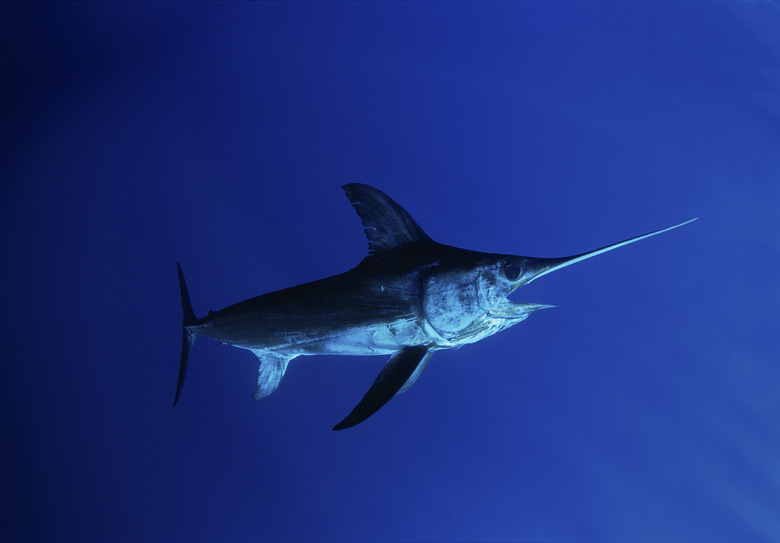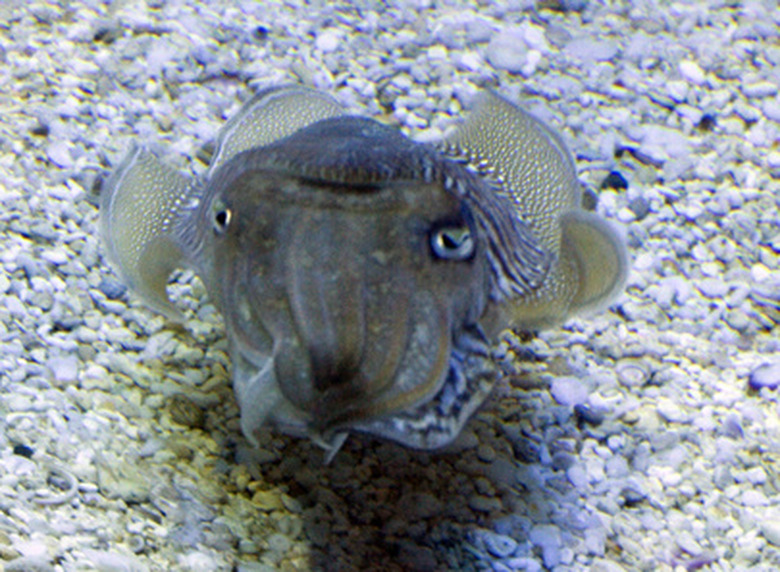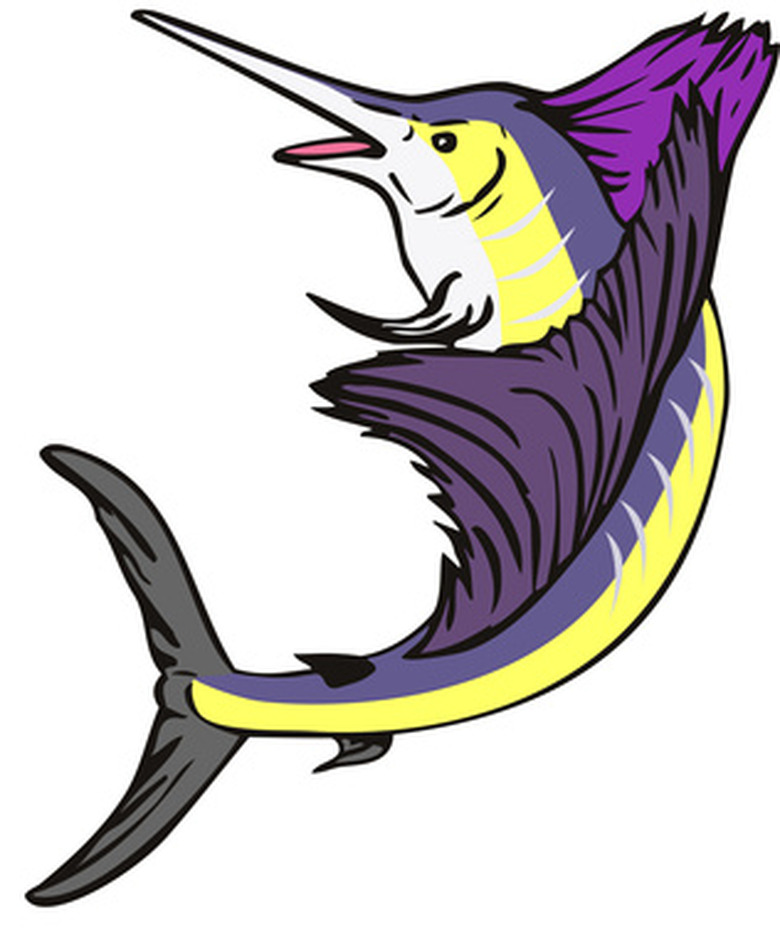What Animals Live In The Mesopelagic Zone?
The Mesopelagic zone, also known colloquially as the Twilight zone, is a range of ocean depth that starts 650 feet below the water's surface to around 3,280 feet below the surface (200 to 1,000 meters). This area is sandwiched between the Epipelagic zone near the water's surface and the Bathypelagic zone, and represents the area of the ocean where light penetration from the surface nearly completely dissipates. This zone is host to a variety of oceanic creatures, most of which are defined as semi-deep-sea animals.
Squid and Cuttlefish
Squid and cuttlefish are two mollusks common in the mesopelagic zone. Cuttlefish have tentacles just like squid and are known for their abilities to change colors quickly. Squid come in a variety of sizes; some in the Twilight zone are even capable of bioluminesence; producing light from their skin to distract or scare potential predators. The Mesopelagic zone is also home to the giant squid, an animal known to reach 60 feet in length; this animal spends much of its time in the lower regions of the ocean.
Wolf Eels
Wolf eels are a common sight in rocky crevices and oceanic shelves. These animals are thick and muscular, often reaching more than 80 inches in length and 40 pounds in weight. These animals spend most of their times in their tiny caves, which they defend fiercely and feed off of passing crustaceans and fish, which they can crush with their powerful jaws. The Wolf eel can also be found in shallow waters above the Mesopelagic zone.
Swordfish
Swordfish are enormous fish, often reaching lengths upwards of 14 feet, that are known for their protruding, sword-like bills and their incredible speed, sometimes reaching up to 50 miles per hour. The swordfish, a solitary animal, spends much of its time during the day swimming about the upper regions of the Mesopelagic zone and enters shallower waters at night to feed off of smaller fish.
Chain Catsharks
Chain catsharks inhabit the upper regions of the Mesopelagic zone. These small sharks have flat shapes as opposed to most other sharks and have skin with black and copper stripes and spots. These animals are capable of living around 900 feet below the surface (around 300 meters) and many can be found in home saltwater aquariums.
Dragonfishes
In the deeper regions of the Mesopelagic zone are various types of dragonfish. These animals have elongated bodies and large jaws, often with large, protruding eyes. One example includes the Stoplight loosejaw dragonfish, which has an elongated lower jaw and a special visual system that uses photophores to produce a small red light that it uses like a searchlight to find prey in the darkness.
Sabretooth Fishes
Sabretooth fishes are appropriately named because of their oversized teeth, which they use to ambush prey in the depths of the Mesopelagic zone. They have elongated bodies like dragonfish but only reach a few inches in length. Thay live almost exclusively in the Mesopelagic zone, rarely venturing into shallower or deeper waters.
Other Fish
Other fish one will encounter in the Mesopelagic zone include lanternfish, which use phosphorous cells to produce light; prickly sharks, which have sharp, sand-papery skin, giving it a prickly texture; and pearlsides, tiny fish that travel in huge schools that are large enough to create a "false seafloor" on sonar readings and are often prey for the larger fish of the Twilight zone.
Cite This Article
MLA
Shields, Brenton. "What Animals Live In The Mesopelagic Zone?" sciencing.com, https://www.sciencing.com/animals-live-mesopelagic-zone-6788119/. 22 November 2019.
APA
Shields, Brenton. (2019, November 22). What Animals Live In The Mesopelagic Zone?. sciencing.com. Retrieved from https://www.sciencing.com/animals-live-mesopelagic-zone-6788119/
Chicago
Shields, Brenton. What Animals Live In The Mesopelagic Zone? last modified March 24, 2022. https://www.sciencing.com/animals-live-mesopelagic-zone-6788119/


